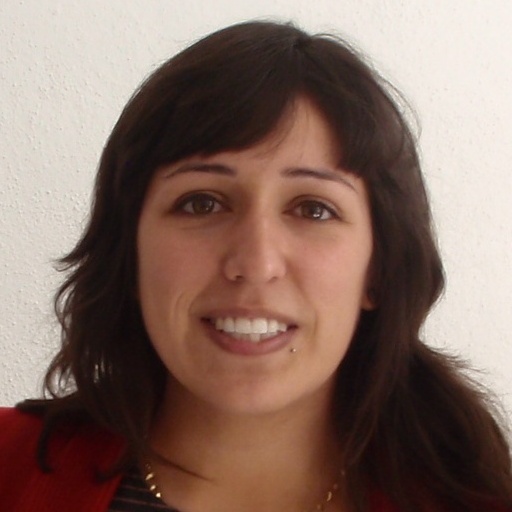Boost your vocabulary: Professions in Spanish

Knowing how to talk about professions in Spanish is key if we’re aiming to reach fluency. This is true whether we’re learning the language for personal or professional goals.
Think about it: when we meet someone new, isn’t work typically one of the first topics to come up? Having a solid list of job names and useful work-related phrases in Spanish will amp up your communication skills in work and social settings alike!
Here, we’ve compiled a list of common occupations in Spanish along with some grammar tips to boost your work talk. On top of that, we’ve put together a batch of phrases that might come in handy too. Let’s get to work (pun intended)!
Learn languages at your pace
Jobs in Spanish: Grammar
Before we jump into vocabulary, it’s important to grasp the grammar related to occupations in Spanish. The crucial thing to keep in mind is that, despite growing efforts to bring more inclusivity into the language, most Spanish speakers still adjust words like nouns and articles to the perceived gender of the person they’re referring to.
Let’s take a quick look at these gender rules when it comes to job titles:
- Masculine job titles: they usually end with -o, -r or -n. They must be accompanied by the masculine article el (the).
Examples: el abogado (the lawyer), el arquitecto (the architect), el carpintero (the carpenter), el doctor (the doctor). - Feminine job titles: to transform them into feminine, all we have to do is replace the -o for -a and the article el for la. In case the word ends with a consonant (like -r or -n), we add -a at the end.
Examples: la abogada, la arquitecta, la carpintera, la doctora. - Exceptions: some profession names don’t distinguish between genders. They usually end with -ista, -ante, -e or -a. So, how can we tell the gender? Just check the article or pay attention to the context!
Examples: la/el artista (the artist), la/el cantante (the singer), la/el policía (the police officer), la/el periodista (the journalist).
Pro tip: if you’re talking about a woman and a man working in the same profession and want to use gender-inclusive language, refer to them separately rather than using the "generic masculine" plural form. For instance, instead of saying los abogados (the lawyers), you can say el y la abogada (the male lawyer and the female lawyer).
Occupations in Spanish: The gender-neutral approach
Would you like to take a gender-neutral approach to job titles in Spanish? How progressive of you! Here are some tips on how to do it:
- Substitute the articles la and el with le, and los and las with les.
- If the word ends in -a or -o, exchange that vowel for -e.
- If the profession name doesn’t differentiate between masculine and feminine, half of the work is already done! All you do is to precede it with the article le or les.
Some examples: les abogades, le arquitecte, le carpintere, les policías, le periodista. If your industry circles don't understand the cutting-edge of inclusion, feel free to revert to the options recommended above.
Learn languages at your pace
80 job names in Spanish
Without further ado, let’s talk vocabulary. We’ve gathered over 80 common profession names in Spanish that we’re sure will prove useful in everyday conversations:
| Spanish occupation (masculine/feminine where applicable) | English translation | |
| 1 | abogado/abogada | lawyer |
| 2 | actor/actriz | actor/actress |
| 3 | administrador/administradora | administrator |
| 4 | albañil | construction worker |
| 5 | analista | analyst |
| 6 | árbitro/árbitra | referee |
| 7 | arquitecto/arquitecta | architect |
| 8 | artista | artist |
| 9 | asistente | assistant |
| 10 | atleta | athlete |
| 11 | azafata | steward/ess |
| 12 | bailarín/bailarina | dancer |
| 13 | banquetero/banquetera | caterer |
| 14 | bombero/bombera | fireman/woman |
| 15 | cajero/cajera | cashier |
| 16 | campesino/campesina | farmer |
| 17 | cantante | singer |
| 18 | carnicero/carnicera | butcher |
| 19 | carpintero/carpintera | carpenter |
| 20 | cartero/cartera | postal worker |
| 21 | casero/casera | landlord |
| 22 | chef | chef |
| 23 | científico/científica | scientist |
| 24 | cirujano/cirujana | surgeon |
| 25 | cocinero/cocinera | cook |
| 26 | conductor/conductora | driver |
| 27 | consultor/consultora | consultant |
| 28 | contador/contadora | accountant |
| 29 | dentista | dentist |
| 30 | dependiente/depedienta | clerk |
| 31 | director/directora | director |
| 32 | diseñador/diseñadora | designer |
| 33 | dueño/dueña | owner |
| 34 | ejecutivo/ejecutiva | executive |
| 35 | electricista | electrician |
| 36 | emprendedor/emprendedora | entrepreneur |
| 37 | enfermero/enfermera | nurse |
| 38 | escritor/escritora | writer |
| 39 | florista | florist |
| 40 | fotógrafo/fotógrafa | photographer |
| 41 | futbolista | soccer player |
| 42 | gerente/gerenta | manager |
| 43 | herrero/herrera | blacksmith |
| 44 | ingeniero/ingeniera | engineer |
| 45 | inversionista | investor |
| 46 | jardinero/jardinera | gardener |
| 47 | jefe/jefa | boss |
| 48 | juez/jueza | judge |
| 49 | licenciado/licenciada | BA graduate |
| 50 | maestro/maestra | teacher |
| 51 | marinero/marinera | sailor |
| 52 | mecánico/mecánica | mechanic |
| 53 | médico/médica | doctor |
| 54 | mesero/mesera | waiter/waitress |
| 55 | ministro/ministra | minister |
| 56 | músico/música | musician |
| 57 | obrero/obrera | laborer |
| 58 | operador/operadora | operator |
| 59 | panadero/panadera | baker |
| 60 | paramédico/paramédica | paramedic |
| 61 | pastor/pastora | pastor |
| 62 | periodista | journalist |
| 63 | pescador/pescadora | fisher |
| 64 | piloto/pilota | pilot |
| 65 | pintor/pintora | painter |
| 66 | plomero/plomera | plumber |
| 67 | policía | police officer |
| 68 | portero/portera | doorman/doorwoman |
| 69 | presidente/presidenta | president |
| 70 | profesor/profesora | professor |
| 71 | programador/programadora | computer programmer |
| 72 | psicólogo/psicóloga | psychologist |
| 73 | psiquiatra | psychiatrist |
| 74 | químico/química | chemist |
| 75 | ranchero/ranchera | rancher |
| 76 | secretario/secretaria | secretary |
| 77 | taxista | taxi driver |
| 78 | técnico/técnica | technician |
| 79 | trabajador/trabajadora del hogar | housekeeper |
| 80 | veterinario/veterinaria | veterinarian |
Note: professions without the alternative -a ending apply to both genders (el y la artista, el y la taxista, el y la psiquiatra……).
Learn languages at your pace
Work talk in Spanish: Useful phrases
Now you know the names of plenty of jobs in Spanish. How about we throw in some common work-related phrases to sweeten the deal? Take a look at these helpful phrases to use when talking about your own job or someone else’s:
- Me dedico a… [industry] la construcción, los restaurantes, la escritura (I’m in… construction, restaurants, writing).
- Ella/él es… artista, cantante, inversionista (she/he is… an artist, a singer, an investor).
- Trabajo tiempo completo (I work full time).
- Trabajo medio tiempo (I work part time).
- Trabajo lunes a viernes (I work Monday to Friday).
- Ella/él trabaja los fines de semana (she/he works on weekends).
- Yo trabajo en esa empresa (I work for that company).
- Estoy empezando mi propio negocio (I’m starting my own business).
- No me gusta/me gusta mi trabajo (I don’t like/I like my job).
- Mi oficina se encuentra en… (My office is in…)
- Tengo una junta/reunión (I have a meeting).
- Trabajo como… [title] consultora, dentista, arquitecta (I’m a… consultant, dentist, architect).
- Trabajo desde casa (I work from home).
Making small talk? Here are some questions to ask that might make things easier:
- ¿En qué trabajas? (What do you do for work?)
- ¿Dónde trabajas? (Where do you work?)
- ¿Cuánto tiempo llevas trabajando ahí? (How long have you been working there?)
- ¿Cuál es tu salario? (What’s your salary?)
- ¿Quién es tu jefe/a? (Who’s your boss?)
- ¿Cuál es tu horario? (What’s your work schedule?)
- ¿A qué te dedicas? (What do you do?)
- ¿Qué haces en tu trabajo? (What do you do at work?)
- ¿De qué se trata el puesto? (What’s the position about?)
Water cooler talk
Knowing how to talk about professions and work in Spanish is an essential step in your language journey. Not only will it improve your workplace communication, but it’ll also be a great tool for chit-chatting and smoothing out those awkward conversation gaps when you’re just getting to know someone (we’re making a strong case with this one). Study up and you’ll be ready for water cooler talk in no time!













